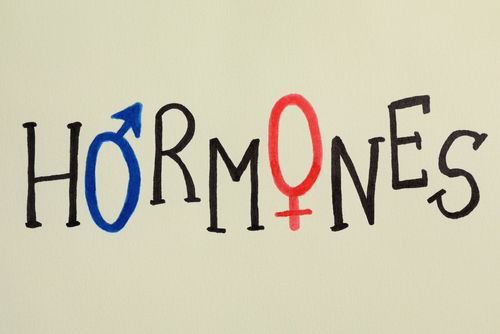Hormones Play a Major Role in Healthy Living

Dealing with hormonal weight gain in a timely manner is critical not only for managing your weight but also for reducing your risk of developing other health conditions and chronic diseases, like type 2 diabetes or obesity.
When hormonal control of weight gain and loss is disrupted, it can lead to weight gain due to factors like hormone resistance, excess or deficiency of specific hormones, and altered hunger, energy usage signals and fat storage.
Your endocrine system plays a major role in regulating all of your body's processes and is made up of hormones and the glands that produce and release them. These hormones are pretty powerful and control everything from mood to weight gain. Hormonal weight gain affects men and women differently. But, it's not just natural occurrences that can mess with their hormones, medical conditions, lifestyle habits and problems with endocrine glands are culprits.
Hormone Tests Can Uncover True Culprits
Hormone tests can indicate if weight gain or difficulty losing weight is due abnormal metabolism and the accumulation of body fat due to imbalances in hormones like those discussed below:
Estrogen: As a woman approaches perimenopause and beyond, the lower production of this important sex hormone can lead to estrogen dominance, insulin resistance, and the subsequent buildup of hormonal belly fat.
Progesterone: When there's not enough progesterone, women may experience irregular periods, headaches, mood changes, and even loss of sleep. Men with low testosterone levels may have a low sex drive, hair loss, fatigue, and loss of muscle mass.
Testosterone: Testosterone hormone also plays a significant role in a man's sexual desire, sperm production, muscle maintenance, and overall energy levels. But, when estrogen levels are high, testosterone production slows down, which can contribute to belly fat.
Insulin: Insulin hormone is released to help regulate your glucose levels in your bloodstream. In addition, it is the hormone that signals your liver to store glucose in fat cells for later use as fuel. These actions signal your body to decrease insulin release.
Cortisol: Fat stores from too much cortisol hormone for too long differ from fat storage from a balanced metabolism. Visceral fat is not easily be converted to fuel for the body. It often attaches itself to organs and can cause a hormonal belly that may be hard to lose.
Thyroid Hormone: One of the key symptoms of hypothyroidism is having to go up a few pant sizes. When the thyroid doesn't produce enough hormones, the metabolism slows down, reducing the calories needed by the body and leading to weight gain. Even mild cases of hypothyroidism can increase the risk of weight gain and obesity.
If you're experiencing weight gain around the abdomen, commonly known as a hormonal belly, it may be due to deficiencies in certain hormones. Hormonal weight gain can increase the risk of various health conditions. For example, excess cortisol and low thyroid hormones can contribute to obesity. So it's crucial to correct imbalances.
The best way to address hormonal weight gain is by balancing your hormones. This can be achieved through lifestyle changes, such as maintaining a healthy diet, regular physical activity, sufficient sleep, and stress management. Exercise can increase leptin levels and improve insulin sensitivity. But, balancing hormones is a personal journey that can take time.
By submitting this form, you agree to receive marketing text messages from us at the number provided, including messages sent by autodialer. Consent is not a condition of any purchase. Message and data rates may apply. Message frequency varies. Reply HELP for help or STOP to cancel. View our Privacy Policy and Terms of Service.

